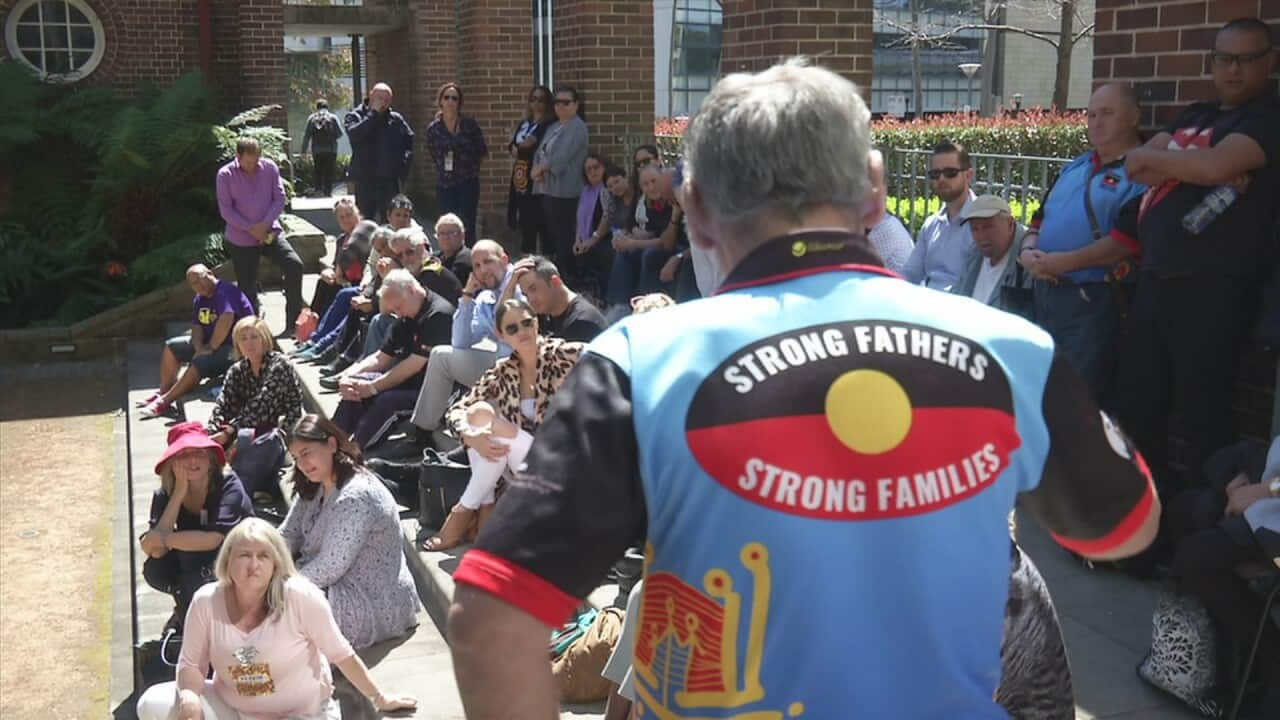A group of 14 students from have graduated as young 'Dhalayi Doctors' and will now stand as leaders for her health, hygiene, literacy, nutrition, environmental health and wellbeing.
'Dhalayi' is a local word for young doctor and since 2013, Dhalayi Doctors has been an Indigenous health program taught in Kempsey Shire schools through the not-for-profit agency where Aboriginal and non-Aboriginal young people are trained to be health ambassadors in their communities.
The initiative is designed and run by local Elders, respected community members and supported by health workers in each location. Malpa CEO, Don Palmer says it is modelled on the Ngangkari, traditional Aboriginal healers of central Australia who passed their skills to children.
Malpa CEO, Don Palmer says it is modelled on the Ngangkari, traditional Aboriginal healers of central Australia who passed their skills to children.

Indigenous student Tyrell is happy to be involved in the young doctor program. Source: ni
“The idea isn’t to just teach the kids, it’s to equip the kids to teach their brothers and sisters the ways of a healthy lifestyle,” Palmer said.
The program runs across the country, with health professionals such as doctors and dentists teaching children what they need to know about being healthy and having a good life.
The benefits from this are that kids learn about Indigenous issues and become friends, as do the parents, so it’s about reconciliation and recognition between communities.”
“We know that 91 per cent of kids in Don Dale are deaf – so this is an excellent problem they’ve identified in that area,” he explained.
"These kids need hearing services but won’t get them which means they won’t go to school because they can’t hear which means they can’t learn and then they end up getting into trouble. This all stems from lack of hygiene.”
Palmer says the community is sick and tired of waiting for the government to help so now with organisations like Malpa, they can do it themselves.
“By the end of this year we’ll have more than 1000 young doctors across the country and next year we have already lined up to train more than 700. The program is branching out from kids just in Years 3 to 4 and now moving on to those in Years 7 to 6."
Tyrell, a young Dhungutti student, smiled as he opened up his Dhalayi Doctor Journal where he was able to show everyone his work over the past few months.
"I like that I learnt new body parts I never knew existed and about bones, muscles and organs. I also liked trying new foods that I hadn't tried before," Tyrell said.
[Students] will now be able to learn how to make better decisions in their lives and help to be better health ambassadors wherever they go to.
Young student Ava explained that the new journals show different themes covered, songs and games, healthy foods to eat, characteristics of a good leader, goal setting, codes of respect, meditation and photographs from the program.
"I liked learning about different things and meeting new people every week for an hour and a half for 15 weeks," Ava said.
Michael Garth from the young Doctors program says Indigenous students like Ava and Tyrell are learning useful skills they will carry on for life.
"Students like Tyrell and Ava will now be able to learn how to make better decisions in their lives and help to be better health ambassadors wherever they go to." Palmer says the power is for Aboriginal people to take control of their own healthy future.
Palmer says the power is for Aboriginal people to take control of their own healthy future.

Indigenous student Ava says Michael from Malpa (left) helped guide her on how to be a leader, eat healthy and set goals. Source: NITV News
“We say the kids may have glue ears but the governments got tin ears because they know it’s a big problem and they are doing nothing.”
“We’ve told the Government we don’t need their money and that we’re just trying to teach them successful methods that have effective results, but they won’t listen.”
The graduates of Dhalayi Doctors are amazing at what they do, but Palmer says it’s not only about them - the parents start to become interested and welcome the projects and respect the teachings.
“The key thing is that we always have non-Indigenous kids in the projects. Too many projects out there are Indigenous only and it breeds resent in the community. The benefits from this are that kids learn about Indigenous issues and become friends, as do the parents, so it’s about reconciliation and recognition between communities.”
Malpa means ‘friends on the journey together’ in Warlpiri and Palmer says that represents blackfellas and whitefellas walking together.
“I’m a whitefella but I’ve got blackfella friends and picked a blackfella name, but all that matters is that we all stay truefellas.”













